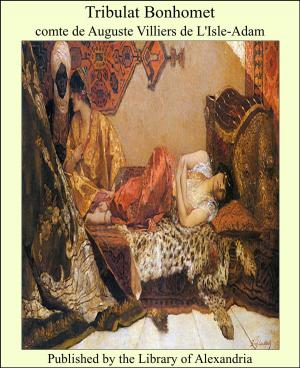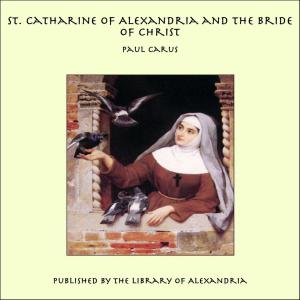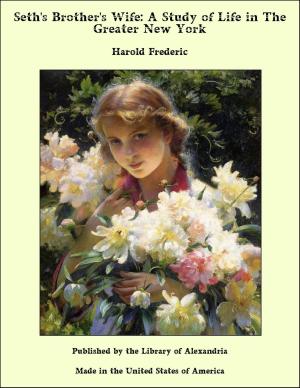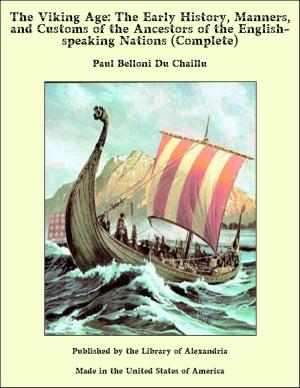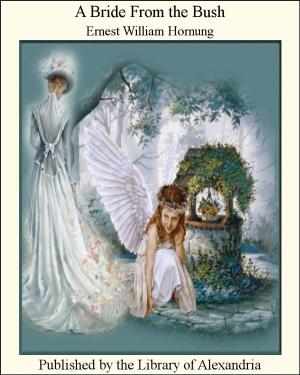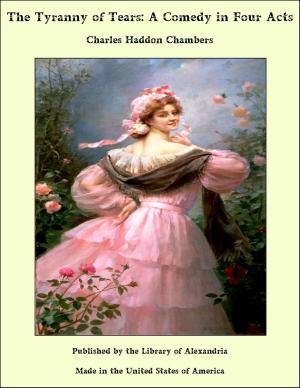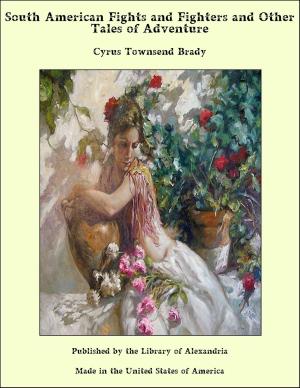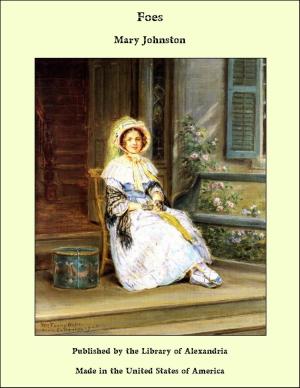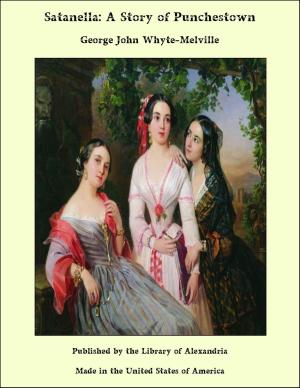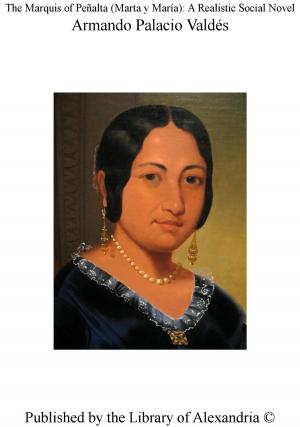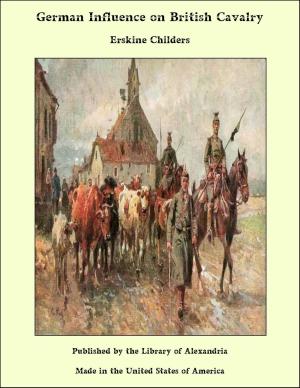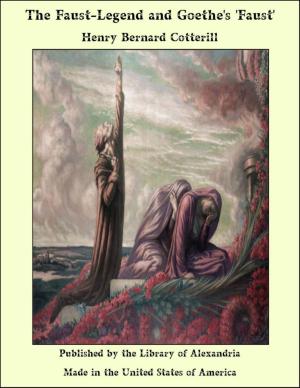A Slav Soul and Other Stories
Nonfiction, Religion & Spirituality, New Age, History, Fiction & Literature| Author: | Alexander Kuprin | ISBN: | 9781465620125 |
| Publisher: | Library of Alexandria | Publication: | March 8, 2015 |
| Imprint: | Language: | English |
| Author: | Alexander Kuprin |
| ISBN: | 9781465620125 |
| Publisher: | Library of Alexandria |
| Publication: | March 8, 2015 |
| Imprint: | |
| Language: | English |
The farther I go back in my memory of the past, and the nearer I get to remembering incidents connected with my childhood, the more confused and doubtful do my recollections become. Much, no doubt, was told me afterwards, in a more conscious stage of my existence, by those who, with loving care, noticed my early doings. Perhaps many of the things that I recall never happened to me; I heard or read them some time or other and their remembrance grew to be part of myself. Who can guarantee which of these recollections are of real facts and which of tales told so long ago that they have all the appearance of truth—who can know where one ends and the other begins? My imagination recalls with special vividness the eccentric figure of Yasha and the two companions—might almost call them friends—who accompanied him along the path of life: Matsko, an old rejected cavalry horse, and the yard-dog Bouton. Yasha was distinguished by the deliberate slowness of his speech and actions, and he always had the air of a man whose thoughts were concentrated on himself. He spoke very seldom and considered his speech; he tried to speak good Russian, though at times when he was moved he would burst out in his native dialect of Little-Russian. Owing to his dress of a dark colour and sober cut, and to the solemn and almost melancholy expression of his shaven face and thin pursed lips, he always gave the impression that he was an old servant of a noble family of the good old times. Of all the human beings that he knew, Yasha seemed to find my father the only one besides himself worthy of his veneration. And though to us children, to my mother, and to all our family and friends, his manner was respectful, it was mingled with a certain pity and slighting condescension. It was always an enigma to me—whence came this immeasurable pride of his. Servants have often a well-known form of insolence; they take upon themselves some of that attractive authority which they have noticed in their masters. But my father, a poor doctor in a little Jewish village, lived so modestly and quietly that Yasha could never have learnt from him to look down upon his neighbours. And in Yasha himself there was none of the ordinary insolence of a servant—he had no metropolitan polish and could not overawe people by using foreign words, he had no overbearing manners towards country chambermaids, no gentle art of tinkling out touching romances on the guitar, an art by which so many inexperienced souls have been ruined. He occupied his leisure hours in lying in sheer idleness full-length on the box in which he kept his belongings. He not only did not read books, but he sincerely despised them. All things written, except in the Bible, were, in his opinion, written not for truth's sake but just to get money, and he therefore preferred to any book those long rambling thoughts which he turned over in his mind as he lay idly on his bed. Matsko, the horse, had been rejected from military service on account of many vices, the chief of which was that he was old, far too old. Then his forelegs were crooked, and at the places where they joined the body were adorned with bladder-like growths; he strutted on his hind legs like a cock. He held his head like a camel, and from old military habit tossed it upward and thrust his long neck forward. This, combined with his enormous size and unusual leanness, and the fact that he had only one eye, gave him a pitiful war-like and serio-comic expression. Such horses are called in the regiments "star-gazers." Yasha prized Matsko much more than Bouton, who sometimes displayed a frivolity entirely out of keeping with his size. He was one of those shaggy, long-haired dogs who at times remind one of ferrets, but being ten times as large, they sometimes look like poodles; they are by nature the very breed for yard-dogs. At home Bouton was always overwhelmingly serious and sensible in all his ways, but in the streets his behaviour was positively disgraceful. If he went out with my father he would never run modestly behind the carriage as a well-behaved dog should do. He would rush to meet all other dogs, jump about them and bark loudly in their very noses, only springing away to one side in affright if one of them with a snort of alarm bent his head quickly and tried to bite him. He ran into other people's yards and came tearing out again after a second or so, chased by a dozen angry dogs of the place. He wandered about on terms of deepest friendship with dogs of a known bad reputation.
The farther I go back in my memory of the past, and the nearer I get to remembering incidents connected with my childhood, the more confused and doubtful do my recollections become. Much, no doubt, was told me afterwards, in a more conscious stage of my existence, by those who, with loving care, noticed my early doings. Perhaps many of the things that I recall never happened to me; I heard or read them some time or other and their remembrance grew to be part of myself. Who can guarantee which of these recollections are of real facts and which of tales told so long ago that they have all the appearance of truth—who can know where one ends and the other begins? My imagination recalls with special vividness the eccentric figure of Yasha and the two companions—might almost call them friends—who accompanied him along the path of life: Matsko, an old rejected cavalry horse, and the yard-dog Bouton. Yasha was distinguished by the deliberate slowness of his speech and actions, and he always had the air of a man whose thoughts were concentrated on himself. He spoke very seldom and considered his speech; he tried to speak good Russian, though at times when he was moved he would burst out in his native dialect of Little-Russian. Owing to his dress of a dark colour and sober cut, and to the solemn and almost melancholy expression of his shaven face and thin pursed lips, he always gave the impression that he was an old servant of a noble family of the good old times. Of all the human beings that he knew, Yasha seemed to find my father the only one besides himself worthy of his veneration. And though to us children, to my mother, and to all our family and friends, his manner was respectful, it was mingled with a certain pity and slighting condescension. It was always an enigma to me—whence came this immeasurable pride of his. Servants have often a well-known form of insolence; they take upon themselves some of that attractive authority which they have noticed in their masters. But my father, a poor doctor in a little Jewish village, lived so modestly and quietly that Yasha could never have learnt from him to look down upon his neighbours. And in Yasha himself there was none of the ordinary insolence of a servant—he had no metropolitan polish and could not overawe people by using foreign words, he had no overbearing manners towards country chambermaids, no gentle art of tinkling out touching romances on the guitar, an art by which so many inexperienced souls have been ruined. He occupied his leisure hours in lying in sheer idleness full-length on the box in which he kept his belongings. He not only did not read books, but he sincerely despised them. All things written, except in the Bible, were, in his opinion, written not for truth's sake but just to get money, and he therefore preferred to any book those long rambling thoughts which he turned over in his mind as he lay idly on his bed. Matsko, the horse, had been rejected from military service on account of many vices, the chief of which was that he was old, far too old. Then his forelegs were crooked, and at the places where they joined the body were adorned with bladder-like growths; he strutted on his hind legs like a cock. He held his head like a camel, and from old military habit tossed it upward and thrust his long neck forward. This, combined with his enormous size and unusual leanness, and the fact that he had only one eye, gave him a pitiful war-like and serio-comic expression. Such horses are called in the regiments "star-gazers." Yasha prized Matsko much more than Bouton, who sometimes displayed a frivolity entirely out of keeping with his size. He was one of those shaggy, long-haired dogs who at times remind one of ferrets, but being ten times as large, they sometimes look like poodles; they are by nature the very breed for yard-dogs. At home Bouton was always overwhelmingly serious and sensible in all his ways, but in the streets his behaviour was positively disgraceful. If he went out with my father he would never run modestly behind the carriage as a well-behaved dog should do. He would rush to meet all other dogs, jump about them and bark loudly in their very noses, only springing away to one side in affright if one of them with a snort of alarm bent his head quickly and tried to bite him. He ran into other people's yards and came tearing out again after a second or so, chased by a dozen angry dogs of the place. He wandered about on terms of deepest friendship with dogs of a known bad reputation.

